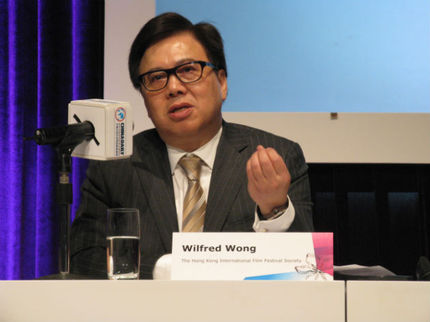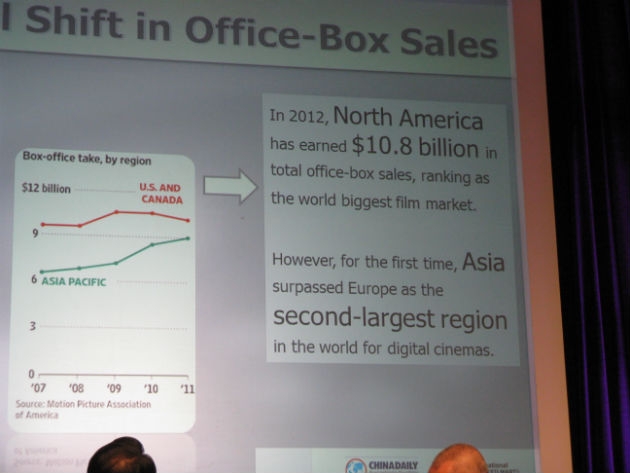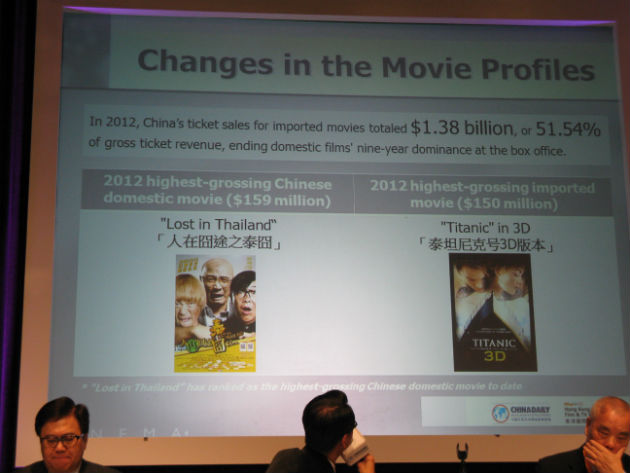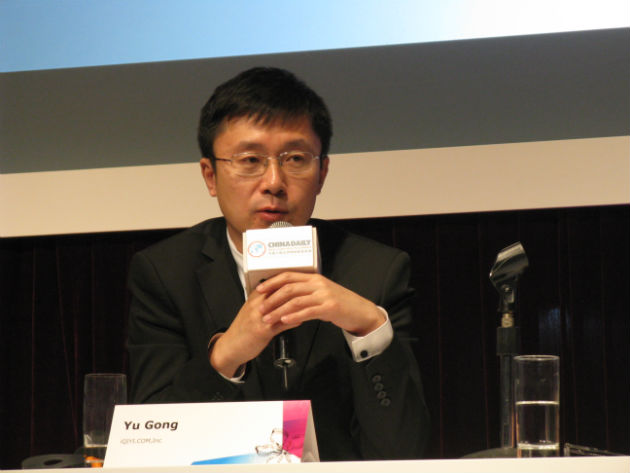HK Filmart 2013: Why Aren't Rich Asians Investing in Movies?

"There are so many rich Asians. Why are they not investing?" Wilfred Wong, chairman of the Hong Kong Film Festival Society Limited, asked the question in his remarks during a conference this morning at Filmart.
The discussion, centered on the theme "Challenges, Opportunities and Partnership for Asia's Film Industry," featured seven panelists expounding on that theme, and, as you might expect from any panel with that many successful executives, the presentation sometime ground to a halt as main points were repeated, essentially saying the same thing: Asian film industries need to work together.
The panelists, however, are all veterans of companies in Hong Kong and China, so the lack of representation from other Asian territories was notable, notwithstanding the widespread experience of the executives throughout the region. Still and all, the panel reflected the passionate perspectives of men who consider China and Hong Kong to be the leaders of the Asian film world.
Wong acknowledged, though, that Hong Kong by itself is too small to be considered a leader; instead, he described it as a "hub." He advocated following the example of Hollywood studios, who banded together to petition China for relaxation on the quota requirements, leading to more Hollywood films gaining release dates in the Mainland.
Disquietly, Wong feels that more market research across Asia is needed, just like Hollywood, which he claimed would facilitate "bolder investment," as investors would know better which stars from Korea (for example) would play better in China or Singapore or Thailand. Of course, veteran students of Hollywood studio product know that "bolder investment" is a two-edged sword, leading to more conservative decisions being made according to the numbers, rather than making bold, creative decisions.
Wong, who was instrumental in creating the Asian Film Awards, observed that Hong Kong filmmakers have asked why their films win so few awards. (Of the 14 awards announced on Monday night, only one went to a Hong Kong film.) Wong tells them: "You're not good enough." He feels that Hong Kong is uniquely positioned to bring the various industries together for an awards show because English is the common language that unites the region, and Hong Kong has a long tradition of fluency in the English language as well as proximity and understanding of Chinese culture.
William Pfeiffer, CEO of Dragongate Entertainment, an exec familiar to many ScreenAnarchy readers from his time running Celestial Pictures as the back catalog of Shaw Brothers films were brought to the home video market, ran through the challenges, opportunities, and partnership possibilities as he sees them. On the positive side, he noted the burgeoning Chinese theatrical and online video markets, the latter of which is in its early stages as a legitimate outlet for legal content.
He acknowledged the co-production challenges, echoing some of the same comments offered on Monday morning in the conference on selling and branding Chinese-language films internationally: Waiting for the next general of stars (the "holy grail," as he described it, of stars who appeal to Chinese as well as international audiences), the logistical nightmares of theatrical and home video release windows, the divisiveness of politics, and even pollution -- who wants to make a movie where the air quality is so poor, as it is in parts of China?
More scattershot comments, plucked from the simultaneous English interpretation provided during the conference:
-- China doesn't have screenwriters who could come up with Star Wars or E.T., asserted Crucindo Hung, managing director of Delon International Film.
-- Director Zhang Yuan spoke strongly about the limitations of China's requirement that all movies be appropriate for general audiences. 'Many of my movies have not been seen abroad. We still have strict censorship, which makes us unequal to other countries.' Later, he called for a rating system in China and elimination of restrictions due to content.
-- "We need a total change of the system," said Fred Wang, chairman of Salon Films Group. "Otherwise, we are running in the Stone Age." His view of Hollywood is that its main purpose was job creation -- though his brief, historically inaccurate description of how the U.S. film industry came to be was a bit startling to hear -- and, combined with its emphasis on always using the latest, greatest technology and support by the financial system -- no one else can afford to spend $50 million to market their movies worldwide -- Hollywood has become unbeatable. So, instead, he spoke strongly about his belief that a wholesale change is needed, with China following the example of the aviation industry in China and controlling the market (including distribution system) entirely.
The conference may not have been as diverse in its participants as it could have been, but it revealed the strong feelings that motivate some of the major players in the Chinese market. Now, will that ripple out and benefit other Asian territories? Or just the ones that do things the way the Chinese veterans wish?





















